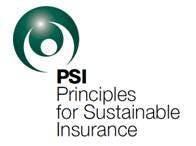
Sustainability
Partnerships & Memberships
Learn about our long-term thinking and how we work alongside national and international organizations dedicated to sustainability.
Corporate Responsibility calls for a long-term focus, which implies that the international aspect of certain local issues be taken into consideration. This process requires interdisciplinary sector-wide solutions and dialogue. As a consequence, AXA is an active member of many international and national organizations whose aim is to advance the Corporate Responsability and sustainable development agenda. These include the following, in addition to local initiatives.
United Nations Global Compact

Launched in July 2000 by UN Secretary General Kofi Annan, the Global Compact seeks to encourage businesses, UN agencies, the labor market and NGOs to work together to integrate 10 universal principles on human rights, labor, the environment and the fight against corruption. The Global Compact is based on the rules of international law adopted by the majority of countries, such as the Universal Declaration of Human Rights and the standards promoted by the International Labor Organization. Each year, as an active member
, AXA updates the Global Compact database with information on best practices that reflect these 10 principles, via a dedicated Communication on Progress
.
United Nations Principles for Sustainable Insurance

The UN PSI are a major common framework with principles integrating environmental, social and governance criteria into the insurance business. The PSI were officially launched during the Rio+20
UN conference in 2012. AXA was one of 27 founding signatories. Following more than six years of work from the UN Environment Programme's Finance Initiative (UNEP FI) and the insurance industry, the signatories of these principles commit to integrating environmental, social and governance criteria into their business and their stakeholder relationships:
- Principle 1:
We will embed in our decision-making environmental, social and governance issues relevant to our insurance business.
- Principle 2:
We will work together with our clients and business partners to raise awareness of environmental, social and governance issues, manage risk and develop solutions.
- Principle 3:
We will work together with governments, regulators and other key stakeholders to promote widespread action across society on environmental, social and governance issues.
- Principle 4:
We will demonstrate accountability and transparency in regularly disclosing publicly our progress in implementing the Principles.
The AXA Group has since the beginning been strongly involved in the design of these principles with the UNEP FI, and was notably Chair of the working group from 2006 until 2010.
In June 2013, AXA published its first PSI report, illustrating how the ESG criteria are being integrated into AXA's operational and business processes.
See also:
United Nations Principles for Responsible Investment

The AXA Group signed the UN Principles for Responsible Investment in 2012.
The UN PRI is a major collective initiative that seeks to promote responsible investment among investors and asset managers. Both AXA Investment Managers and AllianceBernstein are UN PRI members since, respectively, 2007 and 2011. The UN PRI are a set of 6 principles which invite (voluntary) signatories to better integrate ESG considerations in their investment decisions and ownership practices. The initiative was launched under the auspices of the United Nations in 2006. The signatories publicly declare that those issues are relevant long term factors, and are committed to manage them accordingly. This initiative is relevant for long-term investors such as pension funds or insurers which have long term liabilities. It is also open to other players, such as asset managers, who wish to benefit from the PRI's collective action to improve understanding and management of ESG integration.
The UN Principles for Responsible Investment
The 6 principles are the following:
- We will incorporate ESG issues into investment analysis and decision-making processes.
- We will be active owners and incorporate ESG issues into our ownership policies and practices.
- We will seek appropriate disclosure on ESG issues by the entities in which we invest.
- We will promote acceptance and implementation of the Principles within the investment industry.
- We will work together to enhance our effectiveness in implementing the Principles.
- We will each report on our activities and progress towards implementing the Principles.
Statement of Commitment by the Private Sector for Disaster Prevention, Resilience and Risk Reduction
In the presence of Ms. Margareta Wahlström, United Nations Secretary General's Special Representative for Disaster Risk Reduction and Head of the UN Office for Disaster Risk Reduction (UNISDR1), Henri de Castries, Chairman and CEO of AXA, signed the Statement of Commitment by the Private Sector for Disaster Prevention, Resilience and Risk Reduction on Thursday 5th December 2015 in Paris.
By signing this statement, AXA acknowledges the threat posed by disasters, the importance of building resilience and recognizes its role and responsibility in encouraging, supporting and acting to reduce disaster risks. Read the press release.
European Road Safety Charter
AXA signed the European Road Safety Charter in 2011. The Charter is part of the European action program for road safety and aims to encourage businesses and communities to actively participate in reducing road accidents in Europe. Launched in 2004 by the European Commission, the European Road Safety Charter is a participative platform to which businesses, NGOs, research organizations and public institutions all actively contribute. By signing the Charter, each player makes a public commitment to take concrete action and share best practices to increase road safety (user behaviour, vehicle and infrastructure safety, business travel and accident research).
Geneva Association: Kyoto Statement on climate change
AXA signed the Kyoto statement
of the Geneva Association. This declaration is a major commitment of the world's largest insurers, attesting the concern of climate change and its consequences to the insurance industry, with key messages against the potential economic and social backdrop. The International Association for the Study of Insurance Economics, or by its short name The Geneva Association
, is formed by the CEOs from the most important insurance companies in the world. It tries to identify fundamental trends and strategic issues where insurance plays a substantial role or which influence the insurance sector.
The Kyoto statement
affirms that climate change and its economic and social consequences are of serious concern to the insurance industry. Against this backdrop, the insurance industry commits to play a major role in the global efforts to counter climate risks. More precisely, the leaders of the world's largest insurance companies commit towards their main stakeholders - customers, policymakers, with insurance industry peers - with strong key actions.
Caring for Climate
AXA signed the Caring for Climate, The Business Leadership Platform
, a voluntary action platform for companies that seek to demonstrate leadership on the issue of climate change. Jointly backed by the UN Global Compact, the World Business Council for Sustainable Development (WBCSD) and the UN Environmental Programme (UNEP), it is designed to advance practical solutions, and shape both public opinion and public policy. AXA joined this initiative in July 2008 in the belief that climate change requires firm and collective action as well as enhanced private-public partnerships. The actions AXA has already undertaken to address climate change illustrate the reality of this commitment.
UNEP FI-The United Nations Environment Programme Finance Initiative
In April 2002, AXA signed up to the Finance Initiative section of the United Nations Environment Programme (UNEP FI).
The UNEP created the Finance Initiative section in line with its view that the financial sector had a major role to play in promoting economically, socially and ecologically sustainable development. In connection with the UNEP FI, AXA has contributed to the creation of the insurance Working Group, bringing several leading insurers together in order to look into how to incorporate sustainable development issues into the heart of the insurance business. This group drafted the UN Principles for Sustainble Insurance (see above).
Carbon Disclosure Project (CDP)
AXA is a CDP member since 2006. The CDP was created by institutional investors in order to make the economic world more aware of the risks and opportunities associated with the consequences of carbon emissions for the climate, in addition to helping institutional investors assess the possible impacts of climate change on the value of their portfolios more effectively, and encouraging businesses to pay closer attention to their CO2 emissions. This initiative is backed by the United Nations Environment Programme (UNEP).
Observatoire sur la Responsabilité Sociétale des Entreprises (ORSE)
AXA is a founding member of ORSE (France), a not-for-profit organization established under the French Act of 1901, whose role is to gather, analyze and publish information, documentation and research on corporate social responsibility and socially responsible investment in France and abroad.
Entreprise pour l'Environnement (EpE)
AXA is a founding member of Entreprise pour l'Environnement (EpE), a not-for-profit organization set up in 1992 to promote more effective environmental protection management through open discussion with all stakeholders, aimed at encouraging more rational decision-making and setting clear priorities.
Institut du mécénat social - Entreprendre pour la Cité (IMS)
An association set up in 1986 by Claude Bébéar, AXA's founder and the current Honorary Chairman of the Board of Directors, and a group of business leaders, the Institut du mécénat social-Entreprendre pour la Cité encourages businesses to develop community policies that create value for the areas that they are located in, while paving the way for greater social equality. IMS also supported the launch of the diversity charter signed by AXA France.